Benefits of Music Education – What the Research Doesn’t Always Tell You
In this day and age, education is broadly focused on racing to the top. The best grades and first place trophies are not seen as occasional success stories, but rather the standard expectation. It’s difficult to assert the importance of different facets of education without a standard by which to measure. The benefits of music education are often overlooked, due to its lack of prevalence in standardized tests and assessments. At first, this may seem problematic, unless we consider that the intrinsic and extrinsic benefits of music education are often immeasurable.
The fine arts, and music in particular, are no exception to our competitive culture. As students become more refined in their practice, new opportunities for competitions, chair-challenges, and auditions become more present in music making. In addition to competition within music disciplines, we are constantly bombarded by how music is essential to “have an edge” in other subject areas. Numerous news articles cite research studies or new arts integration strategies, telling us that music makes our brains stronger and aids performance in other subjects. The point of this article is not to argue the finer points of scientific research in the areas of arts education and instruction, nor to convince you that “music makes you smarter.” You can take those declarations for what you will. However, I would like to highlight a few of the numerous ways that music and music education benefits music-makers of all ages, and in various situations.
It’s a loaded question, really, when someone asks you why it’s important for his or her child to learn an instrument or participate in a musical activity. And quite honestly, a written or spoken response will never suffice for the actual lived experience of participating in music. But for advocacy’s sake, and music’s sake, here are five benefits of music education I’ve observed and gathered from my own music making experiences.
1. Music is an embedded part of culture
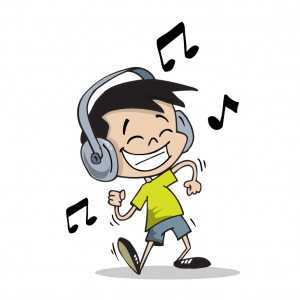 Now we could get very technical here regarding the early history of any culture, the pragmatic use of music and the celebratory aspects that have been used over time and across the world. However, given that many of my students are more focused with the right here and right now, rather than how we came to be, it’s more important to find connections more currently and immediately accessible to today’s music student.
Now we could get very technical here regarding the early history of any culture, the pragmatic use of music and the celebratory aspects that have been used over time and across the world. However, given that many of my students are more focused with the right here and right now, rather than how we came to be, it’s more important to find connections more currently and immediately accessible to today’s music student.
What exactly do I mean? Well, if we use music history and ethnomusicology in chronological order to try and assert the importance of music to students of today, the argument is lost before we even begin. It is much more effective to meet them where there are now, in today’s circumstances, and shed light on the benefits of music through a modern lens.
Oh, you don’t like music, you say? Do you like movies? Do you like restaurants? Have you ever been in a grocery store? What about a wedding? A funeral? Ever seen a ceremony at the white house? Or what about birthdays, isn’t there usually some music associated with those? What’s that you say, you love that new hip-hop track? I wonder where those guys drew inspiration from to lay down those sick beats. Maybe from another culture’s folk music? These inquiries put the focus on how music is used in everyday life and how it can be traced to different times and places. By initiating a conversation with students about the way music plays a role in their lives, you can tailor your instruction to meet those interests and appeal to the role of music and music education in their world.
This isn’t to say that as music educators we should only focus on the modern ways of music making. For students to completely contextualize how music lives and breathes today, it is important to look back on history and evolution, as it is in any subject. However, if we ignore the way students engage with music outside of the music room or studio, we are likely loosing a population of students who will become lifelong musicians.
2. Learning how to play an instrument (including singing) takes an incredible amount of self-regulation
Granted, if a student is entering a grade level where instrumental or vocal ensemble is offered for the first time, the odds that they are going to choose to begin music instruction is much higher than otherwise. The peer pressures associated with (or against, for that matter) are strong in the middle school and high school years. However, if a student decides to pick up an instrument and give it a try, they are going to have to find some sort of motivation, whether intrinsic or extrinsic, to keep going.
With that found motivation comes a certain level of self-discipline to keep going. By learning an instrument or proper vocal technique, students are learning to set goals, take calculated steps to achieve them, self-assess, and repeat the cycle. This process, which is extremely important in music and life in general, is known as self-regulation. Although students likely receive some sort of formal instruction, music study is often at least somewhat an independent venture. Therefore, a whole new realm of responsibility is opened when learning an instrument. In order to become proficient, you must not only put in the appropriate time, but also be meticulous about the path you take to get there.
3. Learning to make music in a group setting is the epitome of teamwork
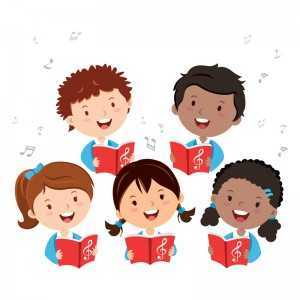 Yes, playing on a sports team is another stellar example of teamwork. Perhaps even the standard we turn to first when referencing cooperative learning. But there are facets of communication and awareness in participating in an ensemble that are different, and essential skills. Firstly, the goal of a music ensemble is rarely visible, but aural in nature. Do to the amount of attention required to create an aural awareness, musicians must remain focused and in tune (pun intended) to other musicians. Second, communication in an ensemble is non-verbal. Not only do musicians look toward a conductor for specific non-verbal cues, but often, particularly in chamber music, a simple glance or a nod is essential to achieving a common goal. Thirdly, musicians must agree, or at least compromise, on interpretation. Whether it be dynamic contrast, tempo, instrumentation, or even rehearsal times, making decisions as a group is an essential characteristic of musicianship.
Yes, playing on a sports team is another stellar example of teamwork. Perhaps even the standard we turn to first when referencing cooperative learning. But there are facets of communication and awareness in participating in an ensemble that are different, and essential skills. Firstly, the goal of a music ensemble is rarely visible, but aural in nature. Do to the amount of attention required to create an aural awareness, musicians must remain focused and in tune (pun intended) to other musicians. Second, communication in an ensemble is non-verbal. Not only do musicians look toward a conductor for specific non-verbal cues, but often, particularly in chamber music, a simple glance or a nod is essential to achieving a common goal. Thirdly, musicians must agree, or at least compromise, on interpretation. Whether it be dynamic contrast, tempo, instrumentation, or even rehearsal times, making decisions as a group is an essential characteristic of musicianship.
4. Community building at its finest
There’s something about being around other musicians that just feels comfortable. Speaking as a somewhat shy individual, I rarely feel out of place in a space where music is happening. Sure, it’s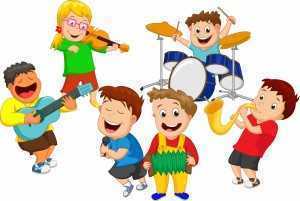 the age-old assumption that folks with common interests are drawn to one another, but there’s more to it than that. There’s an aspect of vulnerability when you play your instrument or sing for and with other people. It’s the opportunity to share something indescribable and incredibly human with other people that bonds musical communities with one another.
the age-old assumption that folks with common interests are drawn to one another, but there’s more to it than that. There’s an aspect of vulnerability when you play your instrument or sing for and with other people. It’s the opportunity to share something indescribable and incredibly human with other people that bonds musical communities with one another.
5. It’s just fun
No doubt about it, it just feels good to make music. Ask anyone who sings and dances in their car, in the shower, or at a party. As I mentioned right off the bat, we lie in a very high-stress, high-stakes society. Now more than ever, it is essential that we find opportunities to be artists, and to feel like a person instead of a product or a number. Music brings us to life, and making music is the epitome of living.
As a music educator, not only have I seen my students embody these five benefits of music education, but I have experienced them myself. I don’t teach music to kids because I want them to be professional musicians. I don’t teach music to kids because I want them to be better at math or reading, or even so they can more creatively solve problems later on in life. I teach music to kids because of the way it feels.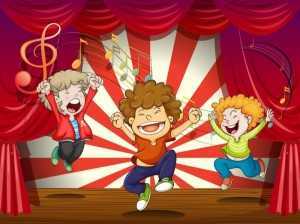
I teach music because I want to give every child the opportunity to feel what I feel when I’m making music. Whether it’s through singing, movement, playing an instrument, or creating a new piece, there’s something for every kid who walks into my classroom. I teach because the opportunities they have in the music room are experiences they would never get anywhere else. I teach because I want my students to find joy, with one another, no matter their differences or likenesses. Music is the great equalizer, the universal language, the infinite community builder.

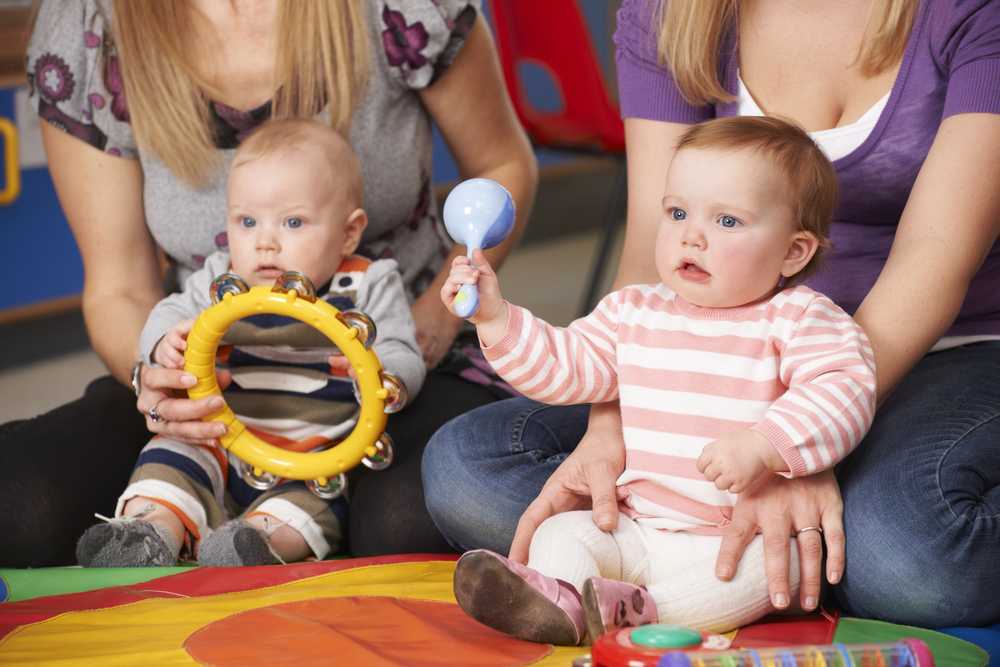

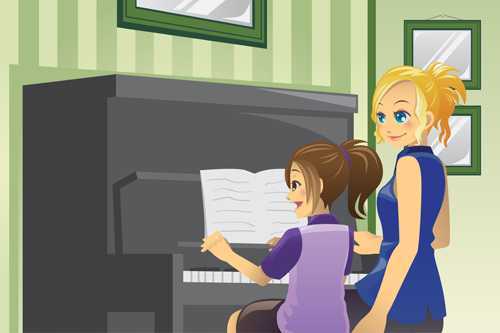


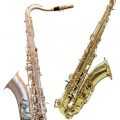

I agree with how you said that being around other musicians is really comforting. Personally, I think that there is a serious benefit to just being around people that are like you and who you can relate to. This would be a great reason to enroll your kids in music lessons for children so they can have that experience of knowing where they fit in and that they have friends that are like them that they can spend time with doing things they enjoy.
I want to make sure that my son is well rounded, and I've been thinking that having him learn some sort of musical instrument would be good. I like how you say that by learning an instrument, your kid is also learning how to set goals, figure out how they're going to meet them, assess how they did, then repeat the whole process. That would be really good for my son, so I think that I'll find him some familiar sheet music and an instrument and get him started.
I want to find some more extracurricular activities for my son to start doing before he gets too old. So I like how you say that playing music with other people is an extremely human experience that can bring people together. I'll have to find a music school to enroll my son in so that he can have that experience.
I like that you said that whether it be dynamic contrast, tempo, instrumentation, or even rehearsal times, making decisions as a group is an essential characteristic of musicianship. I am thinking about having my daughter go to a French music school because I think it would really help cultivate a great life-long skill. I think that it would also teach her things like the importance of working in a group and being disciplined which I think is something else that she will continue to use for the rest of her life. Thanks for pointing out the benefits of music education.